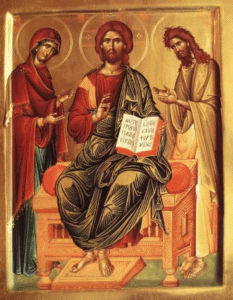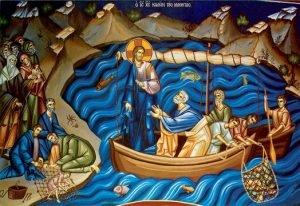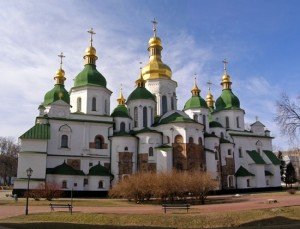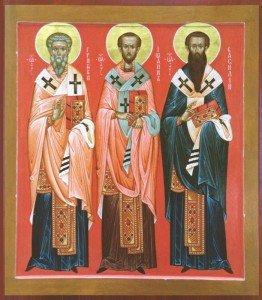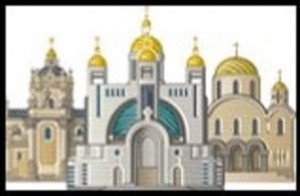 I have been sharing the fact that our Church is a Church that embraces Sacred Tradition in a very big way. Tradition is the ministry of the Holy Spirit among God’s people, ever trying to make clear the truths which Jesus and His Apostles taught: truths regarding such things as God’s Triune existence, the Divinity of the Son and the Spirit, the two natures of Christ, and the interpretation of the prophecies of the Old Testament (OT) which pointed to Jesus as the Messiah. This final point is most important. Although the OT had a very different meaning to the Jews, whose sacred book the OT is, we truly believe that the OT pointed to Jesus as the Messiah. Obviously there is no way that we can prove this. If we were to ask any Jewish person about the interpretation of the prophecies in the OT, they would never come up with the answer that Jesus was the Messiah. As Christians, and as members of our Ukrainian-Greek Catholic Church, we believe that the OT prophesies truly point to Jesus as the one and true Messiah.
I have been sharing the fact that our Church is a Church that embraces Sacred Tradition in a very big way. Tradition is the ministry of the Holy Spirit among God’s people, ever trying to make clear the truths which Jesus and His Apostles taught: truths regarding such things as God’s Triune existence, the Divinity of the Son and the Spirit, the two natures of Christ, and the interpretation of the prophecies of the Old Testament (OT) which pointed to Jesus as the Messiah. This final point is most important. Although the OT had a very different meaning to the Jews, whose sacred book the OT is, we truly believe that the OT pointed to Jesus as the Messiah. Obviously there is no way that we can prove this. If we were to ask any Jewish person about the interpretation of the prophecies in the OT, they would never come up with the answer that Jesus was the Messiah. As Christians, and as members of our Ukrainian-Greek Catholic Church, we believe that the OT prophesies truly point to Jesus as the one and true Messiah.
The seeds of all doctrines are assuredly in the Scriptures, but the people of God need the Revealing Spirit to know how to recognize what is planted there. Tradition gives us such an insight. Without it, the heretics can claim that their ideas are of the Spirit, quoting from the same Bible as we use. Tradition guides us in knowing how to sustain the Truth.
Sacred Tradition not only stands firmly in agreement with the Scriptures – both the Old and New Testaments – it teaches Christians how to correctly interpret them – how to handle “accurately the word of truth.”
Tradition is the way that the Church has, from its inception, truly understood Scripture and made manifest by the way it is used. It is not something which obscures the Scriptures with needless useless interpretations and real complications. On the contrary, Tradition helps us to recognize the Word of God in the Bible. Without Tradition, we would be like the Ethiopian eunuch who tried to understand Isaiah 53 without Phillip’s interpretation. Like the eunuch, our perplexity would resign us to say: “How can I understand unless someone guides me? Tradition is our guide. It is shown in the way that we use Scripture within out Divine Services.
Think about this!

